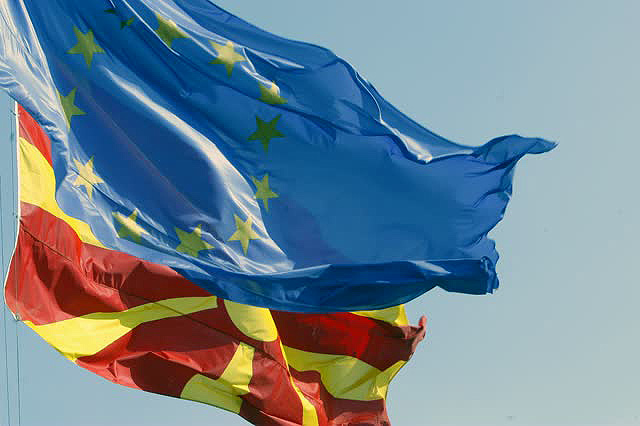The Portuguese presidency in the European Union will not focus on enlargement over the next six months but will try to get the Macedonian and Bulgarian governments closer to a mutual agreement, which will enable Macedonia to begin formal negotiations with the EU, according to Portugal’s foreign minister Augusto Santos Silva.
In an online briefing for journalists, Mr. Santos Silva stated that his country is going to try and organize the first inter-governmental conference between the EU and “North Macedonia”, which couldn’t take place during the German presidency due to the Bulgarian blockade to that decision.
In his briefing, Mr. Santos Silva acknowledged that the respective Macedonian governments have fulfilled important ascension prerequisites by having undertaken systemic reforms. The first diplomat stated: “They have done their job. Now it is time for us to do our job” which could have been taken as a promising prelude to what may follow during the Portuguese presidency.
However, despite this statement, EU enlargement is not placed high on the agenda. Portugal’s permanent ambassador to the EU Nuno Brito has stated on January 5 that the Portuguese presidency of the EU Council is not going to rush to new conclusions about enlargement.
In a statement for the Bulgarian Telegraph Agency, Ambassador Brito has emphasized that there needs to be “unanimity” in bringing decisions regarding admitting new members into the EU, which, again, points to Bulgaria as holding the key to the gates. Whether the Bulgarian government, if it remains in power following the March elections, is going to loosen up its ultra nationalistic demands of Macedonia, is left to be seen in three months’ time.
Mr Brito added that the focus of his country’s presidency will be improving relations with Africa, preparing new rules for emigration into EU countries, dealing with the Covid pandemic, securing a new EU budget and digitalization.
The takeaway for the country based on these circumstances is that the Macedonian government has realized that Bulgaria isn’t taking a yes for an answer, despite the many attempts by Prime Minister Zoran Zaev to appease the positions of the eastern neighbor’s government, at the expense of the Macedonian right to self-determination.
Meanwhile, former Minister of foreign affairs Nikola Dimitrov, who is the acting Vice Premier for European policy, stated in an interview for MIA on January 5 that the government of Zoran Zaev is going to focus on internal issues. Dimitrov concluded that the country needs to take a break from “that problem [EU membership] and practically, take a break from Bulgaria.”
This makes it apparent that the current Macedonian government is faced with a tough period in the coming months as it is expected for the opposition to reflect on the failed promise made by Zaev that Macedonia is certain to be given a date for beginning talks with the EU.



